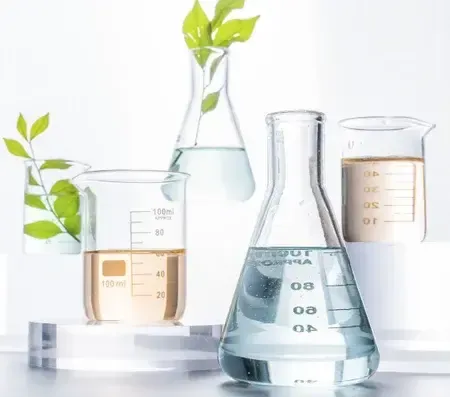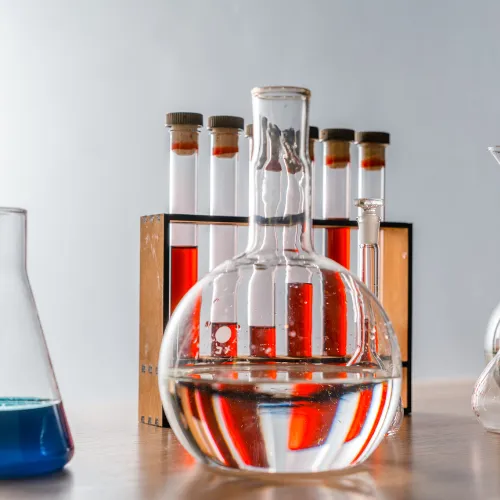
General Chemistry and Turbidity Water Testing
Ensure the Quality of Your Water with Reliable Chemistry and Turbidity Testing

Ensure the Quality of Your Water with Reliable Chemistry and Turbidity Testing
Testing for general chemistry and turbidity in water is essential for ensuring that your water is safe, clear, and free from contaminants that could impact its quality. General chemistry testing examines a wide range of parameters, including pH levels, conductivity, hardness, alkalinity, and the concentration of chemicals, minerals, and other dissolved substances in the water. Turbidity, on the other hand, measures the clarity of the water, detecting particles such as clay, silt, and organic material that can cause cloudiness or discoloration.
Turbidity is a key indicator of water quality, with high levels suggesting the presence of suspended particles that could harbor harmful bacteria or other pathogens. It can also affect the effectiveness of water treatment processes and reduce the aesthetic quality of drinking water.
General chemistry testing provides valuable insights into the water's composition and helps identify whether harmful substances are present in concentrations that exceed regulatory limits. For instance, high levels of hardness or excessive chlorine can affect equipment, pipes, or the health of those consuming the water.
In Ontario, Regulation 170/03 under the Safe Drinking Water Act mandates that water systems meet strict standards for both general chemical composition and turbidity, with guidelines for turbidity levels set to prevent waterborne contaminants from affecting public health.
By conducting regular general chemistry and turbidity testing, businesses and property owners can ensure water quality, protect equipment, and maintain compliance with local regulations. Our certified sampling and lab analysis provide comprehensive reports with actionable insights to help you address any water quality concerns.

Our general chemistry testing examines a broad spectrum of parameters, including:
- pH levels
- Total dissolved solids (TDS)
- Chlorine and chloramine levels
- Hardness and alkalinity
- Heavy metals (including iron, manganese, zinc, etc.)
- Nutrients, such as nitrates and phosphates
We also assess turbidity, measuring suspended particles like dirt, organic material, and microorganisms. High turbidity levels may indicate contamination and warrant further analysis.
Recommendation: Regular testing of general chemistry and turbidity is crucial for maintaining clean, safe water in systems such as industrial cooling, municipal water supplies, and potable water sources.
Routine general chemistry and turbidity testing is vital to ensure water quality and safety. High turbidity can indicate contamination from particles or pathogens, compromising both water safety and aesthetic qualities. Poor water chemistry can lead to scaling, corrosion, or the buildup of harmful substances in pipes, filters, and equipment, potentially causing damage or malfunctions.
In the case of municipal water systems or industrial processes, maintaining appropriate water chemistry can prevent failures and reduce operational costs by ensuring systems run efficiently.
By testing for turbidity and general chemistry, we provide insights into the long-term health of your water system, helping you identify potential issues before they escalate into costly problems.


Ontario’s Regulation 170/03 mandates that both municipal water systems and private water suppliers meet specific water quality standards. Regular testing for general chemistry and turbidity ensures that your water meets these standards and that you are in compliance with regulations that govern water quality.
Failure to comply with water quality standards can result in penalties, increased liability risks, and even potential health risks for consumers. By partnering with Canadian Water Compliance, you are not only ensuring the safety and reliability of your water, but also mitigating legal and financial risks associated with non-compliance.
We offer certified sampling, accredited lab analysis, and detailed reports that give you the tools to stay compliant with local water regulations and prevent waterborne diseases or contamination.
Serving across Toronto, Mississauga, Brampton, London, Kitchener, Niagara, St. Catharines, Guelph, Waterloo, Collingwood, Barrie, Wasaga Beach, Midland, Huntsville, Gravenhurst, Minden, Oshawa, Peterborough, Kingston, Ottawa, Scarborough, Markham, Richmond Hill, Vaughan, Burlington, Etobicoke, Pickering, Ajax, Whitby, Caledon, Milton, Hamilton, Oakville and the surrounding areas.